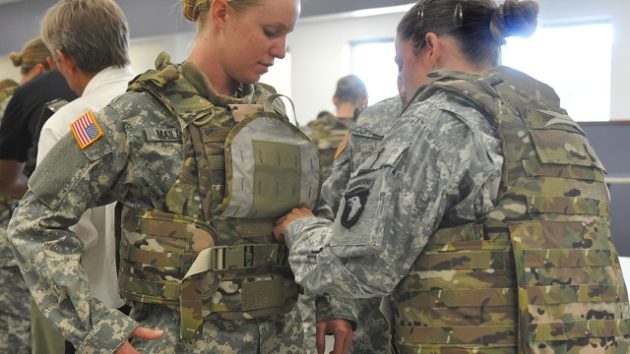President Obama: What are you doing to keep our 3,000 soldiers in Liberia from getting Ebola?
President Obama is sending 3,000 U.S. soldiers to Ebola infested Liberia. Nearly half of these solders, 1,400, are from the 101st Airborne Division stationed at Fort Campbell, Kentucky. Other units involved are from Fort Hood, Texas and Fort Carson, Colorado. After their mission they will return to these bases in America’s heartland.
Tim Mac from The Daily Beast reports:
As the U.S. military rushes to combat Ebola in West Africa, soldiers are receiving on-the-fly instructions on how to protect themselves against the deadly virus.
American military operations to fight Ebola in Africa are unfolding quickly—forcing the military to come up with some procedures and protocols on the fly.
Soldiers preparing for deployment to West Africa are given just four hours of Ebola-related training before leaving to combat the epidemic. And the first 500 soldiers to arrive have been holing up in Liberian hotels and government facilities while the military builds longer-term infrastructure on the ground.
Phil Stewart from Reuters reports:
At Fort Campbell in Kentucky, spouses of U.S. soldiers headed to Liberia seem to be lingering just a bit longer than usual after pre-deployment briefings, hungry for information about Ebola.
For these families, the virus is raising a different kind of anxiety than the one they have weathered during 13 years of ground war in Afghanistan and Iraq. They want to know how the military can keep soldiers safe from the epidemic, a new addition to the Army’s long list of threats.
“Ebola is a different problem set that the division hasn’t (faced) before,” said Major General Gary Volesky, who will soon head to Liberia along with soldiers from the 101st Airborne Division.
There are already more than 350 U.S. troops on the ground in West Africa, mostly in Liberia, including a handful from the 101st. That number is set to grow exponentially in the coming weeks as the military races to expand Liberia’s infrastructure so it can battle Ebola.
[Emphasis added]
RedState’s Erick Erickson writes:
In Dallas, TX, a health care worker who came into contact with the Ebola patient has contracted Ebola. The health care worker was a trained professional wearing protective clothing. But that trained professional in protective clothing now has Ebola.
There is always a risk. There was always going to be a risk.
But can the President answer this question: what are we doing to make sure our 3,000 soldiers in Liberia are not going to get Ebola?
Military.com reports:
Liberia’s United Nations peacekeeping mission has placed 41 staff members, including 20 military personnel, under “close medical observation” after an international member of its medical team was diagnosed with Ebola this week — the second mission member to test positive for the deadly disease.
[ … ]
The outbreak has now killed more than 4,000 people in total, the WHO said.
More than 400 health care workers have contracted Ebola, and 233 of those have died, according to the WHO. Liberia and Sierra Leone have both recorded 95 health worker deaths.
[Emphasis added]
Since this announcement there have been mixed messages from the administration and the Pentagon about the role U.S. soldiers will play in Liberia. Given the spread of the Ebola pandemic it is becoming clear that even healthcare professionals adhering to the CDC protocols are not immune from contracting the virus. Larry Copeland in his column U.S. lacks a single standard for Ebola response, writes:
As Thomas Eric Duncan’s family mourns the USA’s first Ebola death in Dallas, one question reverberates over a series of apparent missteps in the case: Who is in charge of the response to Ebola?
The answer seems to be — there really isn’t one person or agency. There is not a single national response.
The Atlanta-based Centers for Disease Control and Prevention has emerged as the standard-bearer — and sometimes the scapegoat — on Ebola.
Public health is the purview of the states, and as the nation anticipates more Ebola cases, some experts say the way the United States handles public health is not up to the challenge.
President Obama is not only putting our soldiers at risk, he is putting the nation at risk.
RELATED ARTICLES:
Obama is sending our best, most decorated combat troops to fight Ebola in West Africa
U.S. Army Fort Detrick, Maryland Lab To Study Ebola Treatment
Healthcare Worker Who Cared For Deceased Ebola Victim In Dallas Tests Positive For The Disease
Ebola crisis puts Obama’s credibility to the test – Washington Times
RELATED VIDEO: Medical Expert Says ‘We Have to Be Ready For’ U.S. Soldiers Contracting Ebola in West Africa



Trackbacks & Pingbacks
[…] President Obama is sending 3,000 U.S. soldiers to Ebola infested Liberia. Nearly half of these solders, 1,400, are from the 101st Airborne Division station […]
Comments are closed.